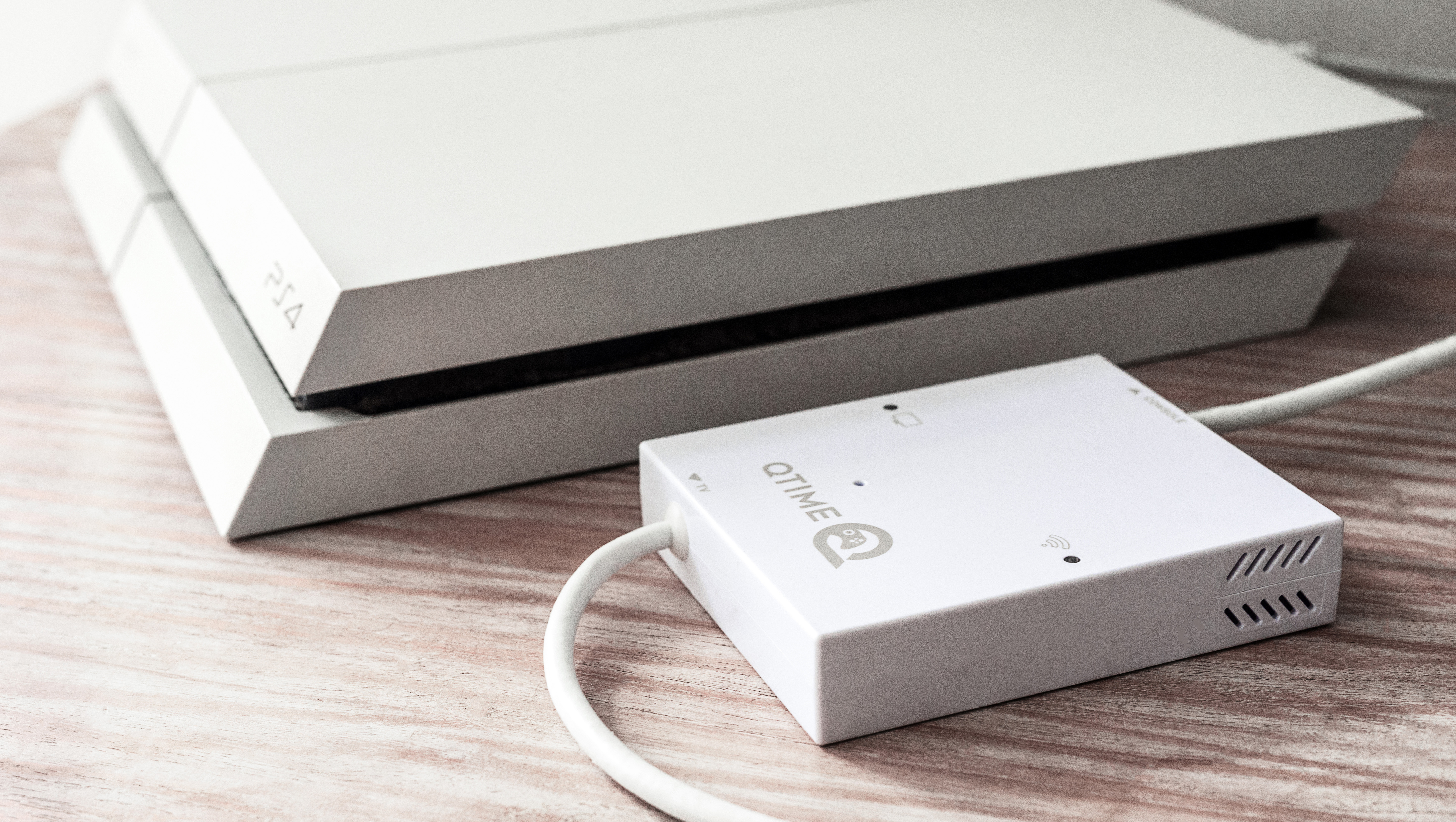Confiscating games, hiding the remote control and unplugging the TV could be a thing of the past for parents wanting to limit the amount of time their children play video games, thanks to new technology developed by a University of Bath graduate.
The QTIME device simply plugs into a PC, PS4 or Xbox console and is controlled by an app which allows parents to set a daily time allowance, see how much time is being spent playing video games as well as having the ability to immediately shut down the screen.
Developed by James Potter, a BSc Computer Science graduate from the University of Bath, and his dad Keith on their farm in Bradford on Avon, QTIME – short for Quiet Time – is a smart HDMI cable that pairs wirelessly with a home’s WIFI and is controlled by an app available on most smart phone devices.
When a child is playing on their games console, they will receive a 10 minute warning saying their daily gaming time is nearly up and when that time has been reached, the device will simply turn off the screen.
The device is also prepared for the eventuality of a child attempting to bypass it by unplugging it. QTIME is able to detect when it has been disconnected and will email the parent as soon as it suspects someone is trying to bypass it. The app also shows you if the QTIME device has been unplugged for a while and whether it thinks the games console is on right now, making it easy for parents to keep track of their children’s gaming activity even if they are not at home.
James and Keith have been developing QTIME over the past two years and have been pleased with the feedback they have received, having provided parents with the prototype device to test over a two week period with many parents keen to hold into the device.
QTIME co-creator, James Potter, commented:
I wanted to spend every waking hour playing computer games when I was a teenager. My father would try all sorts of tactics to get me to moderate my gaming, including turn off the mains power to the whole house.
A lot of what I learned when studying at the University of Bath turned out to be really useful while building QTIME. In particular I learned C programming during my second year and I needed that to write the code that runs on the device.
We appreciate gaming is a hobby enjoyed by many and the motivation to create QTIME is not to stop children playing video games entirely, but to identify a technical solution to restrict the time they spend gaming each day where necessary.
No parent wants to have to confiscate their children’s games console or pull the plug out of the TV but if we can help parents to balance their children’s daily gaming time, we hope this may contribute to an increase in their overall health and perhaps, as in my case, their exam results.
In recent times, addiction and medical experts, charities and parents have become increasingly worried about the time children are spending gaming. With video games now available on a range of devices – from PCs to tablet devices to mobile phones – there are growing concerns that children may be developing an addiction to gaming.
Most recently, in June, the World Health Organisation (WHO) published a new International Classification of Diseases and officially classed 'gaming disorder' (often referred to as computer game addiction) as a new disease.
For more information about the QTIME device, please visit https://getqtime.com/

